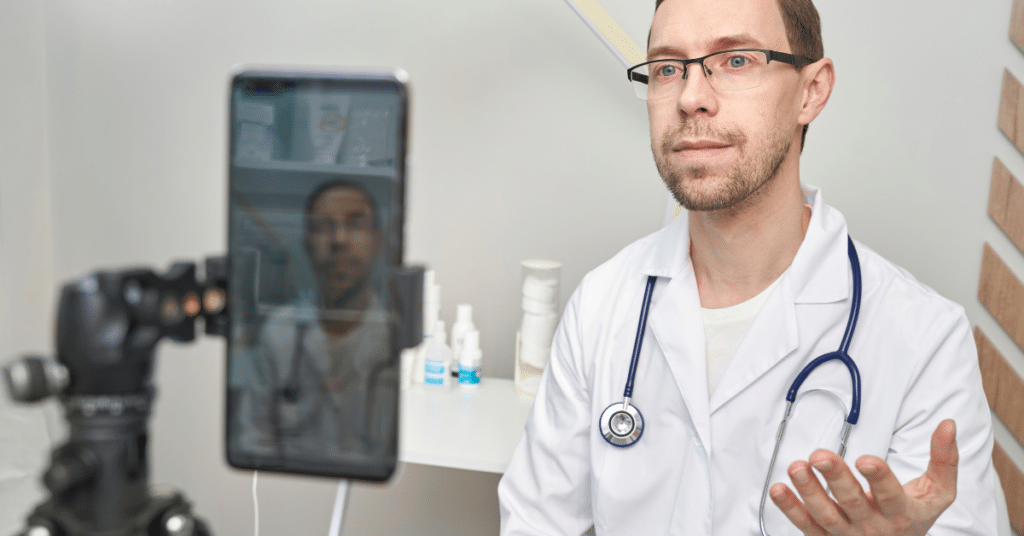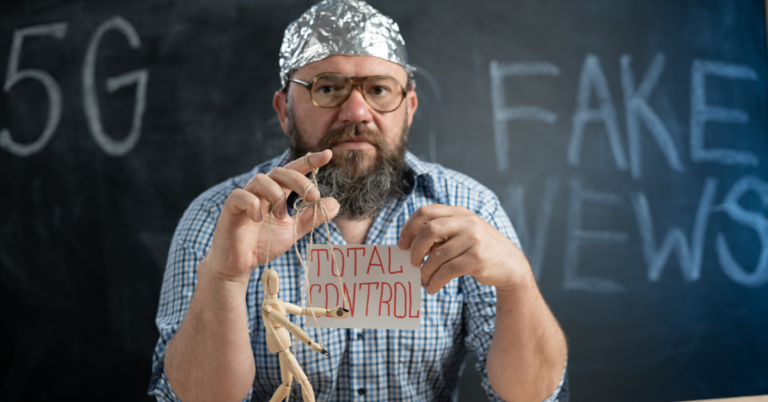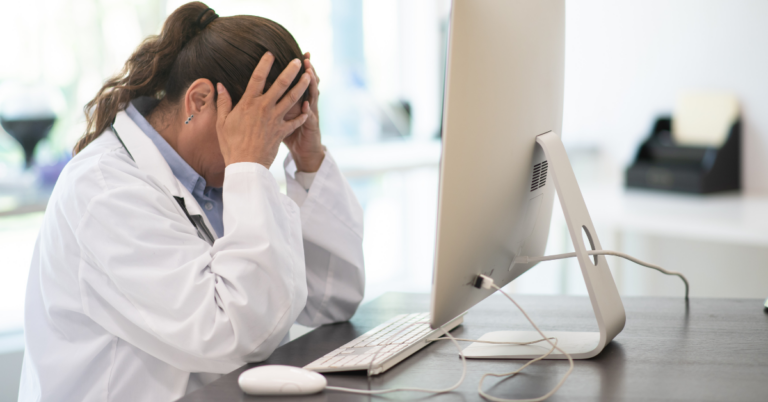Social media has seamlessly woven itself into the fabric of our lives, offering a platform for connection, expression, and information sharing. However, for medical professionals, the allure of social media comes with a complex web of potential pitfalls. While it can be a valuable tool for networking, staying informed, and engaging with patients, it also poses substantial risks, from patient confidentiality breaches to unprofessional conduct. In this blog post, we will delve into the multifaceted dangers of social media use for medical professionals, exploring real-world examples and providing actionable insights on safe online practices.
What Are The Risks of Social Media Use For Medical Professionals?
When using social media, physicians should be aware of the following risks and use caution in these areas.
- Breach of Patient Privacy and Confidentiality. One of the most critical aspects in the field of medical practice involves safeguarding patient privacy and confidentiality. The prevalence of social media has blurred the boundaries between personal and professional lives, which may inadvertently result in medical professionals unintentionally revealing patient information. Even seemingly innocuous social media posts can unwittingly divulge patient data, as it’s challenging to manage who can view and share such content. Violating patient confidentiality can carry legal consequences and erode the trust that patients have in their healthcare providers.
- Tarnishing Professional Integrity. Social media platforms are often used for personal expression, but they can also become a platform for venting frustrations or airing controversial opinions. Medical professionals need to be mindful that their online behavior reflects their professional identity. Posts that are offensive, discriminatory, or unprofessional can significantly damage their reputation and credibility, potentially leading to disciplinary actions by medical boards or institutions.
- Potential to Damage Your Career. Using social media as a medical professional also carries a notable risk of harming one’s professional standing and career. Social media platforms are open to the public, and any content shared can be viewed by a wide audience, including employers, patients, and medical regulatory bodies. A case in point is that of Dr. Windell Boutte, a dermatologist based in Atlanta. Her medical license was revoked following the viral spread of videos she had posted on YouTube. These videos depicted her dancing and singing during surgical procedures, resulting in multiple malpractice lawsuits and the eventual revocation of her license.
- Erosion of Trust and Ethical Dilemmas. The erosion of patient trust can be a direct consequence of unprofessional behavior on social media. When patients witness their healthcare providers participating in inappropriate or questionable online activities, it can undermine their confidence in the competence and ethical standards of these professionals. Additionally, medical professionals often face ethical dilemmas when balancing their roles as both healthcare providers and social media influencers, as these roles can often come into conflict.
Problems That Can Arise from Social Media Misuse
Physicians may encounter significant challenges as a result of thoughtlessly engaging in social media activities.
Loss of Medical License or Credentialing. Misusing social media can lead to the suspension or revocation of medical licenses or credentials. Dr. Katharine Roxanne Grawe’s case exemplifies this, as her livestreamed operations on TikTok led to the permanent revocation of her license. Medical boards and regulatory bodies take such breaches of professionalism very seriously, as they prioritize the trust and safety of patients above all else. Instances like Dr. Grawe’s should serve as cautionary tales for medical professionals, illustrating how even a single misstep on social media can lead to the loss of hard-earned medical licenses and the end of a once-promising career.
Public Backlash and Social Fallout. Medical professionals are certainly not exempt from public scrutiny. A single thoughtless post or comment has the potential to swiftly ignite public outrage, setting off a chain reaction of social repercussions. The interconnectedness of online platforms means that even an apparently harmless interaction can gain viral traction and capture the attention of a worldwide audience. When the public is incensed by a medical professional’s online conduct, it can result in enduring harm to their reputation, which extends far beyond the digital realm and influences their credibility and standing within the medical community. Furthermore, the ease with which screenshots are taken and content is shared means that offensive or unprofessional material can resurface years after its initial posting, haunting professionals well into the future.
Spread of Information and Misleading Content. Information spreads rapidly on social media, which can contribute to the dissemination of false medical advice and misleading information. Medical professionals who use social media as a communication platform should exercise caution, as their posts may unintentionally be taken as medical advice. This spread of inaccurate medical information can have harmful consequences for patients who rely on it to make crucial health decisions.
Blurred Boundaries in Doctor-Patient Relationships. Connecting with patients on social media can sometimes create a gray area within the doctor-patient relationship. This can lead to challenges in maintaining professional boundaries, objectivity, and impartiality. Such interactions may blur the lines between offering formal medical advice and having casual conversations, potentially impacting the quality of patient care.
Loss of Job Opportunities. Engaging in unprofessional or inappropriate behavior on social media can result in the loss of job opportunities for medical professionals. Many employers and institutions conduct online searches as part of their hiring process, and a candidate’s online presence can influence their hiring decisions. Posts that reflect poorly on a medical professional’s character or professionalism can deter potential employers from offering job opportunities.
Personal and Emotional Toll. Legal battles and public scrutiny can take a heavy toll on the emotional well-being of medical professionals. With the blending of their professional and personal lives on social media, any negative repercussions stemming from online activities can permeate every aspect of a medical professional’s life. The stress associated with legal proceedings, which may involve defending against lawsuits or regulatory investigations, can become overwhelming and emotionally exhausting. Furthermore, the burden of public scrutiny can give rise to feelings of shame, guilt, and anxiety, gradually eroding a medical professional’s self-esteem and affecting their mental health. The sense of isolation that comes from realizing that their actions have not only jeopardized their career but also eroded their patients’ trust can intensify these emotional challenges.
Backlash and Consequences Due to Social Media Use
Several medical professionals have faced backlash and consequences due to their social media use.
Dr. Roger Hodkinson, a pathologist, gained attention for making controversial and dismissive statements about COVID-19 on social media. His comments downplayed the severity of the virus, leading to criticism from the medical community and the public, ultimately affecting his credibility as a medical professional.
Dr. Stella Immanuel, a Houston-based physician, faced widespread criticism and ridicule for claiming that hydroxychloroquine was a cure for COVID-19 and that masks were unnecessary. Her statements, which were not backed by scientific evidence, were widely debunked by medical professionals and public health experts. The Texas Medical Board has also taken corrective action against the doctor for her claims.
Dr. Windell Boutte, a dermatologist and plastic surgeon, faced legal and professional consequences when videos of her dancing and singing in the operating room went viral on YouTube. Several former patients claimed negligence and permanent disfigurement, leading to multiple malpractice lawsuits and damage to her reputation.
Dr. Lara Kollab faced the swift and consequential aftermath of her actions when her employment was terminated, and her medical license revoked due to her engagement in making anti-Semitic comments on social media. The incident unfolded in Ohio, where the doctor was accused of disseminating offensive remarks, including a disturbing tweet that allegedly indicated a willingness to administer incorrect medication to Jewish individuals. Consequently, her affiliation with the medical center was severed, underscoring the profound ramifications of her online behavior.
A video of Dr. Anjali Ramkissoon, a neurology resident at the time, went viral as she was caught on camera berating an Uber driver. The incident led to widespread condemnation and impacted her medical career, prompting her employer to place her on leave.

Safe Social Media Practices for Medical Professionals
To navigate the treacherous waters of social media, medical professionals should:
- Adjust their social media privacy settings.
- Maintain professionalism, avoiding offensive content.
- Refrain from sharing patient information or making false claims.
- Be cautious of cyberbullying and harassment risks.
- Maintain separate personal and professional profiles.
- Think before posting to ensure alignment with professional standards.
Social media has the potential to be a valuable ally for medical professionals, promoting connection and communication. However, it also carries significant risks. By recognizing these inherent dangers and embracing responsible online conduct, medical professionals can leverage the advantages of social media while ensuring the protection of their patients, careers, and professional reputation. By staying informed and exercising caution, they can navigate the digital realm while upholding the core values of their profession.





